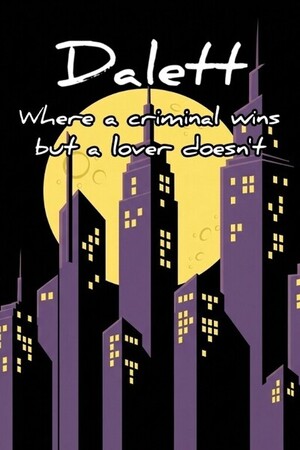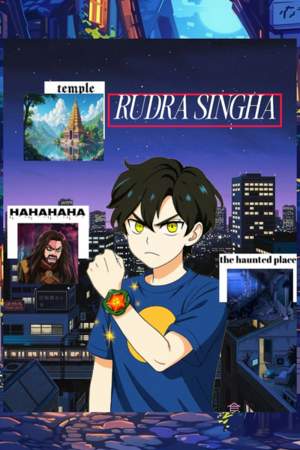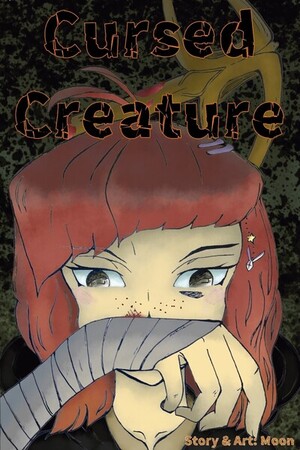Chapter 1:
Da Rez (Part 1)
Dalett: Where a criminal wins, but a lover doesn't
The letter arrived folded so precisely that it looked like it had been machine-cut. The envelope bore no return address, only his name—John Turner—in thin, blue ink, slightly slanted to the left. No postage stamp, no seal. It had been slid under the apartment door sometime during the night.
He sat on the edge of his old rusted bed, holding it like it might bruise. A ceiling fan spun above him. The smell of sweat and old metal clung to the room, a part of him now.
He read the letter again.
Mr. Turner,
You are requested to attend a private discussion at the Cortez residence regarding matters concerning Clair Cortez.
Your punctual presence is expected this afternoon at 4:00 PM.
-H. Cortez
No “sincerely.” No “thank you.” Just the name, like a stone. He ran his thumb along the edge of the paper. It was smooth. High quality. The kind you never touched unless you were being hired or fired. Or invited. His phone sat on the bedside table. He checked it again. No messages. He opened Clair’s thread. The last message he’d sent: “I miss you. Please tell me you’re okay.”
Unread.
He opened the wardrobe. There were only three shirts. He picked the blue one—the least stained, though the cuffs were dark from engine grease. He sniffed it. Passable. He shaved with a dull razor, nicked his jaw, and dabbed it with a rag that smelled like kerosene. In the cracked mirror above the sink, he examined himself. The collar wouldn’t lie flat. His hair kept parting the wrong way. There was no hiding the scar on his lip from last summer; a customer's dog had bitten him when he tried to deliver a fixed moped. Still, he looked... decent. At least not like a thug. He folded the letter and slid it into his wallet.
By the time he stepped outside, the sun had turned the sidewalk into a frying pan. His boots left dry prints in the dust. The city grew sharper the further he walked: potholes gave way to pavement, and corner stores to glass facades. The towers where the Cortezs lived rose like polished knives in the distance. He checked his watch. It was 3:22 PM. He tried to imagine Clair’s face when she opened the door. Would she smile? Had she known about the letter? Would her father shake his hand, offer him a drink, and ask his intentions?
The image of Clair leaning against his bike with that sideways smirk, the way she had the first time they met, pulled him forward like a chain. He kept walking.
The iron gates stood at least twelve feet high, black and sharpened like spearheads, silent as they glided open before him. John didn’t touch anything. There was no guard in sight. Just the expensive machinery doing its job. The driveway curved through a trimmed grove of cypress trees, smooth and untouched by tire marks. At the end, the Cortez house sat like it had always been there. Its pale stone rose three floors high, with tall arched windows that reflected the sun so perfectly, as if nothing inside could be seen unless it wanted to be.
John slowly approached the front entrance. The door opened before he could lift his hand to knock. Mr. Alfred, the house manager, stood in the frame, neither smiling nor frowning. His ivory-colored suit was starched and spotless, his white gloves clasped behind his back.
“Mr. Turner,” he said. “You’re early.”
John hesitated. “By… three minutes.”
Alfred stepped aside without answering. “Mr. Cortez will receive you shortly. This way.”
The interior was colder than he expected. Not cool—cold, like a bank vault. The hallway was wide and high-ceilinged, with floors of polished marble and glass cases along the walls displaying useless, beautiful objects: carved ivory birds, a stringless violin, and a child's shoe cast in bronze. But, there was no sign of Clair.
“She’s not here?” John asked.
Alfred paused mid-step, then turned with the slowness of a man resetting a clock. “Miss Cortez is not available.”
John frowned. “Is she—?”
“I wouldn’t know,” Alfred said. Then, without turning again, he said “This way.”
John was led down a narrow hallway that opened into a sitting room. Leather chairs. Crystal ashtrays. A grandfather clock that wasn’t ticking. On a tray sat a porcelain cup of tea already poured, a faint curl of steam rising from it. Alfred gestured to the chair beside it.
“Please wait here. Mr. Cortez will join you shortly.” John nodded. “Thank you.”
Alfred gave the smallest of nods in return, turned, and walked out. The door shut with a soft, padded sound
John sat stiffly, hands on his knees. The tea smelled faintly of bergamot. He didn’t touch it. The silence pressed in, not the casual quiet of wealth, but something sterilized, scrubbed. As if the walls themselves had been instructed to behave.
He shifted in his seat. No ticking clock, no footsteps above. Even the light seemed artificial, like it came from lamps hidden in the walls. He checked his watch again. 4:01 PM. The silence only grew heavier. Then, footsteps. Slow but deliberate. The door opened.
Henry Cortez entered.
No introduction. No handshake. No smile.
Just a faint nod, not of greeting, but of acknowledgment.
“John,” Cortez said, in a voice as smooth and empty as the room.
“John,” Henry Cortez said again, and slowly crossed the room to the liquor cabinet. His steps made no sound on the marble. He moved like someone accustomed to watching others flinch.
John stood. “Sir, I appreciate you inviting me. I wasn’t sure if—”
Cortez raised a hand without looking. “Sit.” The word wasn’t hostile. It was surgical.
John sat.
Cortez uncorked a square bottle of amber liquid, poured a small measure into a crystal glass, then added a single cube of ice from a silver bowl. He didn’t ask John if he wanted any. He turned and sat in the chair opposite him. His face was unreadable, not angry, not cruel. But empty.
“I’m not interested in your background,” he said. “Not your finances, not your intentions, not your feelings.”
John opened his mouth, but nothing came out.
Cortez reached into the inside pocket of his jacket and produced a cream-colored folder. He laid it on the table between them.
“Open it.”
John hesitated, then reached forward with both hands and opened the folder.
Inside were six photographs. All black and white. All grainy. All perfectly damning.
The first: Clair and John standing at a train platform. She’s touching his chin. He’s smiling.
The second: Clair sitting on John’s bike, legs crossed, leaning back into his chest.
The third: A blurred image—their faces close, her lips on his.
John felt his stomach crawl up into his ribs. His fingertips twitched. “I—” He looked up. “These were private.”
Cortez sipped his drink. “Nothing in this country is private.” John closed the folder slowly, like it was something dying. “We didn’t mean—” His voice cracked. “Clair isn’t—we weren’t trying to insult anyone. I care about her. I’ve never hurt her.”
Cortez didn’t answer.
John swallowed. “If you just spoke to her—”
Cortez leaned forward and rested his glass on the table.
“You think you’re the first.”
The words didn’t sting; they stunned.
“She told me she—” John stopped. “She chose me.”
Cortez's mouth twitched, not into a smile, but into something colder—a moment of self-amusement, maybe, or disgust.
“You took something that didn’t belong to you.”
John’s jaw tightened. “She’s not a thing.”
There was a pause. Long and airless.
Cortez reached beneath the table, opened a drawer, and pressed something.
John heard a soft click in the hallway. A door opening somewhere.
“What are you—?”
Two men entered through the side door. Suits. No ties. The kind of plain, clean appearance you didn’t notice until it was too late.
John stood halfway, hands raised in confusion. “Sir— I— please— I’m just—”
One man took his left arm. The other took his right.
“No— wait— please!” John’s voice cracked. “Please— let me talk to Clair— just let her speak— please, just ask her—”
He twisted. One of the men pressed a thumb into his elbow joint. The pain dropped him to one knee.
Cortez remained seated.
“She’ll forget you within a week,” he said. “You’ll be nothing but a mistake she never mentions.”
John thrashed once, hard, wild—the kind of move a man makes when he still thinks there’s a chance.
Then he locked eyes with Cortez.
And Cortez… blinked. That was all.
Mr. Alfred appeared again in the doorway, watching.
The men began dragging John backward.
His feet scraped the floor. His voice strained against the walls.
“Clair—! Clair!”
No one answered. Not Alfred. Not Cortez.
The door closed.
The hallway narrowed as they dragged him down.
John's boots thudded and scraped against the marble. His wrists burned where the men's hands clamped his arms. No one spoke. Not him. Not them. Not the butler who shut the doors behind them like he was closing a window.
They passed a service corridor, then another. The lights changed—from warm recessed ceiling bulbs to flickering fluorescents humming like flies. The floor tiles became cheaper. Yellowed. Worn.
They stopped at a steel door with a dented panel and a keypad. One of the men entered a six-digit code. The lock clicked open, and the door gave a soft metallic sigh as it swung inward.
The smell hit first. Dampness, chemical heat, old leather, and something sharp underneath. Just like scorched hair. The air was warmer down here, humid, but not from the climate. From Steam.
John tried to speak. But his tongue was thick and his throat tight. He barely managed a whisper. “Please…”
The men ignored him.




Please sign in to leave a comment.